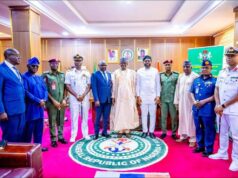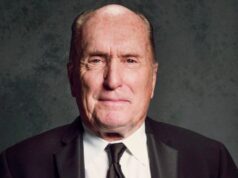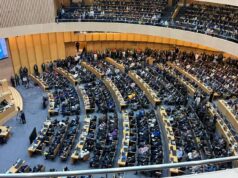The Sultan of Sokoto, Muhammadu Sa’ad Abubakar and Catholic Bishop of Sokoto, Rev. Matthew Kukah, have called on Nigerians to unite, irrespective of religious backgrounds, to make the nation better.
They stated this at the unveiling of the book, ‘Scars: Nigeria’s Journey and the Boko Haram Conundrum,’ authored by a former Chief of Defence Staff, Gen Lucky Irabor, in Abuja, on Friday.
The Sultan urged Nigerians to work as one big family with different backgrounds to forge ahead.
The Sultan urged Nigerians to work as one big family with different backgrounds to forge ahead.
He, however, dismissed the perception that Islam is aimed at capturing power.
“I also want to correct the notion when Bishop (Matthew) Kukah talked about Islamism. You use some words maybe in the wrong manner, or somebody might feel Islamism is negative.
“Islamism is not aimed at seizing power at any particular forum. Islam is after good governance in society,” he stated.
“President Goodluck Jonathan was President; we gave him 100 per cent support. Throughout his presidency, nobody said anything negative against him; he knows that, and he is here.
“So, Islamism is not what you think it is; it is a wrong notion that you are bringing up here that it is to seize power. It is not to seize power. We’re after good governance,” he added.
The monarch noted he had been accused of speaking against the second term of former President Muhammadu Buhari when he spoke about Islam and good governance in 2011, an action he said he took because it was the right thing to do.
“In September 2019, I gave a talk on Islam and good governance in Nigeria. President Buhari was just going for his second term.
“After giving my talk, the following day, the papers carried it [that] I was aiming at President Buhari’s second term because I said things that a good Muslim should do as a leader and what he should not do.
He also explained that Muslims are guided by a code of conduct, adding that Islam abhors extremism.
“And these are written. So, we have a code of conduct; we have ways and means of life. Anybody coming outside these to say things that he really doesn’t know about is not for Islam because Islam abhors extremism.
“You cannot be an extremist and then claim to be a good Muslim. So, let’s learn some of these issues, and then when we are talking about insecurity in our great country, we have to be careful in how we say things, how we present them.
“So, let’s come closer as one big family with different backgrounds to forge ahead to make this country a better country, because there is nothing anybody can do,” the Sultan stated.
Kukah Urges Mutual Respect
On his part, Kukah called for mutual respect as an ingredient of nation-building.
“I’d like to use this to speak to my Muslim brothers, especially from northern Nigeria. Islamism, that is what is called political theology in Christianity, is the instrumentalisation, the skewed usage and manipulation of religion as a tool for governance in a democracy.
“There is a way that good Muslims can participate in a democracy, and good Christians can participate in a democracy. But the idea that we want to use religion to enforce power is what Islamism is. It has become destructive to the religion itself in this day and age,” he said.
“Yes, they are killing Christians, but when are we going to come to a point where they are killing Nigerians? So Islamism threatens to destroy the foundations of Islam as a sacred religion, and we must insist collectively, because this is where Boko Haram started from.
“The point I am making here is that we, the religious leaders and the political actors, must come to terms with the fact that there are boundaries. If these boundaries are not respected, you can pay the Imam, you can pay the bishop, you can pay whatever money you want. Good governance is not about how much we are dispensing,” the cleric stated.
The Catholic bishop also noted that extremism poses a threat to the unity of any nation, hence the need for unity.
“The Egyptians dealt with Islamism when it reared its ugly head, and the people of Algeria did so in 1993. There are many Boko Haram sympathisers who are not immediately visible to us, but we know that people with fat bank accounts are funding them.
“Maybe there was a time that it didn’t matter, but we have come to a point where injury to one is injury to all. We must work towards a point because Islamism still poses a serious danger,” Kukah added.




